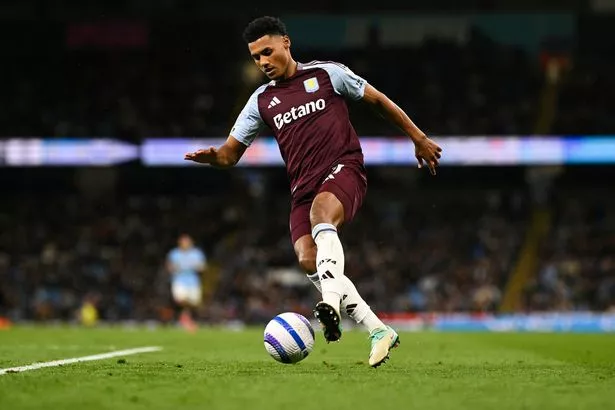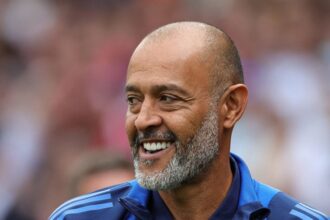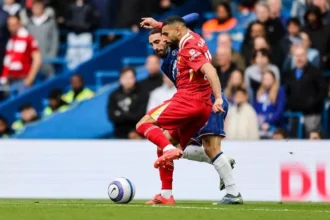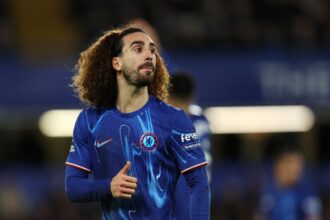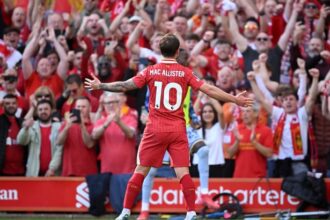Liverpool had a very quiet transfer window in Arne Slot’s first summer. That is expected to change this year, and Robbie Fowler has recommended placing the usual strategy on hold in order to land one particular signing.
The lack of transfer activity clearly hasn’t held Slot back. Despite only signing Federico Chiesa (and agreeing a future deal for Giorgi Mamardashvili), Liverpool has cruised to the Premier League title.
But FSG now intends to strengthen from a position of strength. And with Michael Edwards leading big-picture strategy, it isn’t hard to imagine the kinds of profile that Liverpool will be seeking out.
Liverpool has made a habit of shopping in the early-to-mid-20s market. Typically, these players have had the time to become established in a reasonably high-quality league, but they still have room to develop around higher-quality teammates and an elite manager.
In fact, one of the signings from when Liverpool last won the league more or less exemplifies the pattern. Despite greater clamor for Timo Werner, Edwards went for Diogo Jota, who has scaled up his Wolves output to become a valuable squad member at Anfield.
Having said that, the number nine role is one of the positions that Liverpool is expected to prioritize this summer. There are question marks over whether Jota can truly be relied upon to lead the line on his own, while the punt on Darwin Nunez (made when Edwards was not at the club) has not paid off at all.
There are other areas where Liverpool will focus, too. Left-back, for instance, looks in need of a refresh, with Andy Robertson having turned 31. But having a world-class striker is one of the most important elements in a side hoping to consistently challenge for the top honors. And Fowler has suggested that Liverpool might need to deviate from its usual model to get the right man.
“The problem is clubs know that [Liverpool] are potentially on the lookout for a No 9, so the prices will become silly,” Fowler explained to I News. “If you look at [Alexander] Isak, he’s going to be £100m plus easily.
“He’s a wonderful player. But Liverpool may not want to pay that, and they’ll look around.
“You could look at Ollie Watkins. He doesn’t really fit the model in terms of what Liverpool want, given his age [29 years old], but I’d go and get him for a couple of years because he’s a tremendous player and established and experienced in the Premier League.”
(Image: OLI SCARFF/AFP via Getty Images)
There’s little doubt that Isak would be the dream candidate. Young enough to still just about sit within the usual Liverpool model, he’s also ready-made to come in and deliver at the absolute highest level.
But Fowler’s estimation of his value is on the low side. In fact, Newcastle may well not let him leave for any price, given its own ambitions of reaching the very top. At 29, Watkins does not have the same upside as Isak. He will probably not get significantly better, and he has fewer of his prime years left.
However, he does bring that same proven track record of being able to perform to a high level in the Premier League. He has more or less spearheaded Aston Villa’s own rise up the ranks, in parallel to the successes at Newcastle.
Villa would also be more willing sellers. Liverpool wouldn’t get a bargain, but the Midlands club looks set to miss out on Champions League money, and cashing in on someone who turns 30 later this year would likely be seen as a reasonable market opportunity.
But Slot may feel that Watkins offers a package that he already has, at least to a certain extent. He is, ultimately, a volume finisher — he misses a lot of chances, but creates so many for himself that he still posts good numbers. Watkins is a better finisher than Nunez, but they are of the same cloth in that respect. The contrast to Isak, a natural-born marksman, is significant.
Fowler is right that Liverpool may need to look outside the box in order to find a striker who can drive the club to more success immediately. But while Watkins is an interesting option, and one worthy of consideration, the Reds would probably conclude that he is not such a game-changer that he justifies breaking the model.


